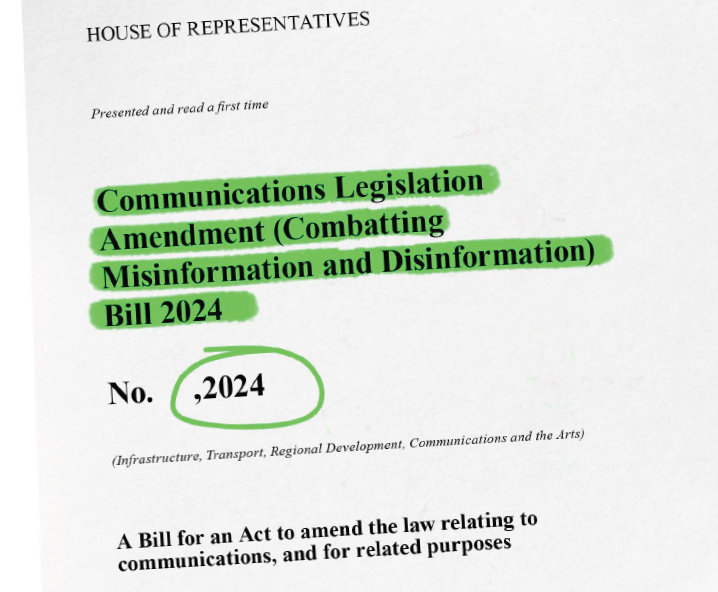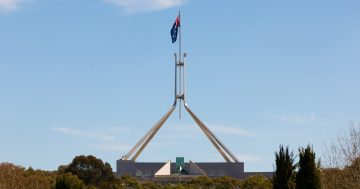
Limiting the spread of misinformation online is becoming a battle for the Federal Government. Image: IPA.
Most Australians are concerned proposed new misinformation laws will be used against them for political gain, according to new polling commissioned by conservative think tank, the Institute of Public Affairs (IPA).
Recently introduced to parliament, the Communications Legislation Amendment (Combatting Misinformation and Disinformation) Bill 2024 aims to reduce the spread of seriously harmful misinformation and disinformation on digital communications platforms.
It introduces transparency requirements for certain digital communications platforms, including obligations to publish information on risk management actions, media literacy plans and complaints processes.
But according to the Parliamentary Business website, “it is unclear if the bill will operate in a manner compatible with Australia’s international human rights obligations related to freedom of expression.
“The definitions of misinformation and disinformation create some uncertainty as to the breadth of content captured,” the website states.
The legislation also gives the Australian Communications and Media Authority (ACMA) bolstered powers to create digital platform rules requiring platforms to “report and keep records on certain matters” related to misinformation and disinformation.
IPA deputy executive director Daniel Wild said Australians had an issue with the proposed new laws, with polling data from independent marketing research firm Dynata indicating most Aussies believed they were an assault on freedom of speech.
“Australians are clear eyed about the censorship threat the Federal Government’s proposed misinformation laws pose, with two-thirds concerned it will be used for political purposes to silence the opinion of mainstream Australians,” Mr Wild said.
“The Federal Government’s misinformation laws are the biggest assault on freedom of speech in Australia’s peacetime history and are designed specifically to shut down debate online.
“The revised legislation represents a chilling assault on every Australian’s right to free speech. The new bill broadens provisions to censor speech, which even the government’s fatally flawed first draft did not include.”
The research found:
- 65 per cent of Australians said they were concerned misinformation laws would be used by government officials for political purposes;
- 69 per cent of Australians said they were concerned misinformation laws would be used by social media companies for political purposes;
- 45 per cent believed free speech should be protected, even if this meant wrong, inaccurate, or false information was published;
- Young Australians were most opposed to the government’s proposed online censorship laws, with the majority of Australians aged 18-34 believing freedom of speech should be protected online.
The survey also established that while Australians believed misinformation was a problem, 53 per cent believed censorship would cause more problems than it solved, while 17 per cent wanted more censorship.
The legislation provides ACMA with a graduated set of powers to develop and register enforceable industry misinformation codes and standards.
The bill has been referred to the Senate Environment and Communications Legislation Committee for inquiry with a reporting date of 25 November 2024.
The Senate Scrutiny of Bills Committee and Parliamentary Joint Committee on Human Rights have raised concerns with the legislation.
When introducing the bill to Federal Parliament, Communications Minister Michell Rowland said it was a Labor priority to act on keeping Australians safe from the harms of misinformation.
“Misinformation and disinformation pose a serious threat to the safety and wellbeing of Australians, as well as to our democracy, society and economy. Doing nothing and allowing this problem to fester is not an option,” Ms Rowland said.
“The government is committed to keeping Australians safe online, and that includes ensuring the ACMA has the powers it needs to hold digital platforms to account for misinformation and disinformation on their services.
“Following public consultation on the draft bill last year, revisions have been made that carefully balance the public interest in combatting seriously harmful misinformation and disinformation with the freedom of expression that is so fundamental to our democracy.
“These revisions reflect that feedback and I look forward to seeing the bill become law as we combat the threat of misinformation and disinformation.”
The Federal Government revved up its action to combat online disinformation following the dissemination of false information during recent by-elections and the Indigenous Voice to Parliament referendum.
Original Article published by Chris Johnson on Riotact.







